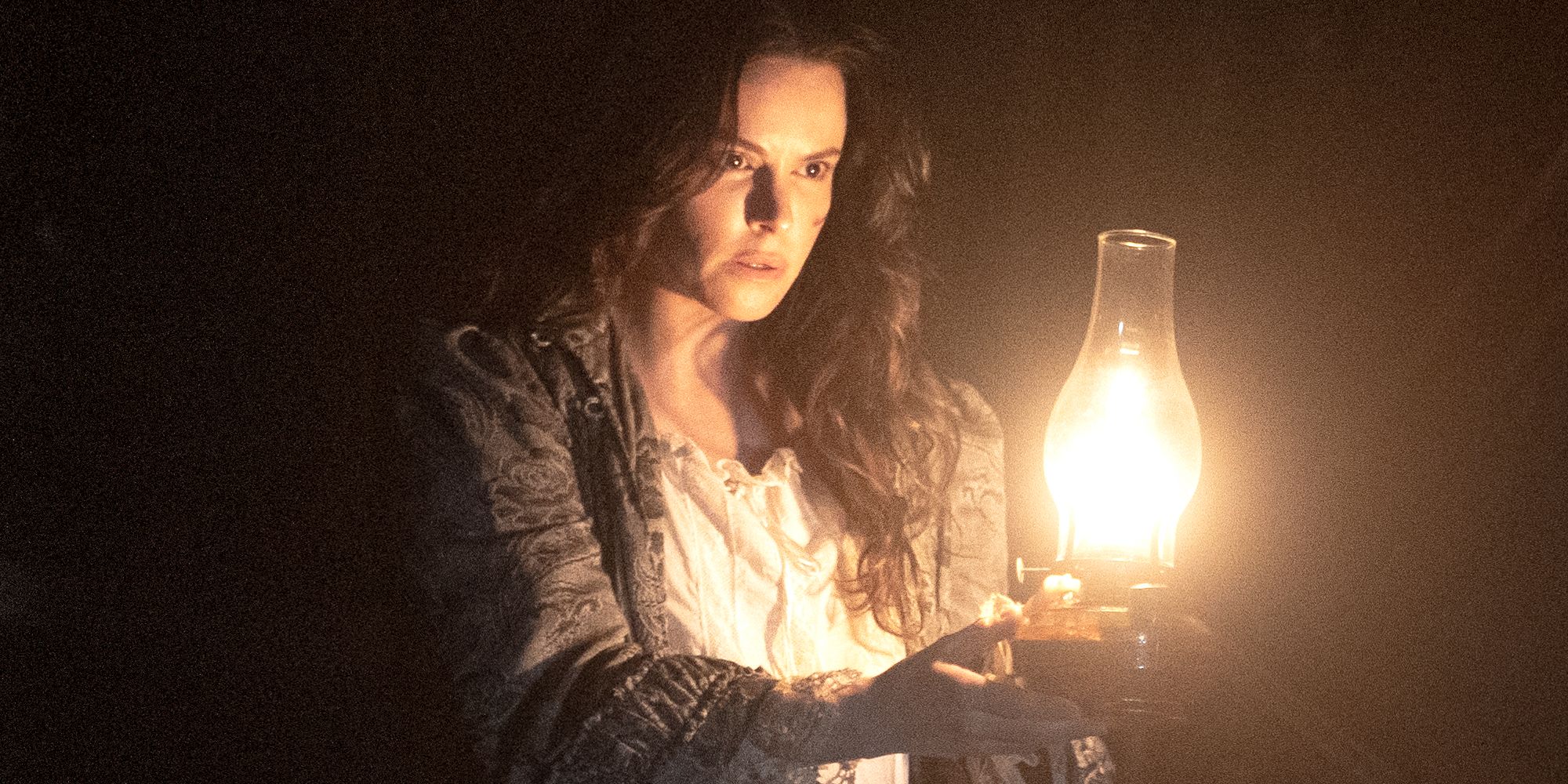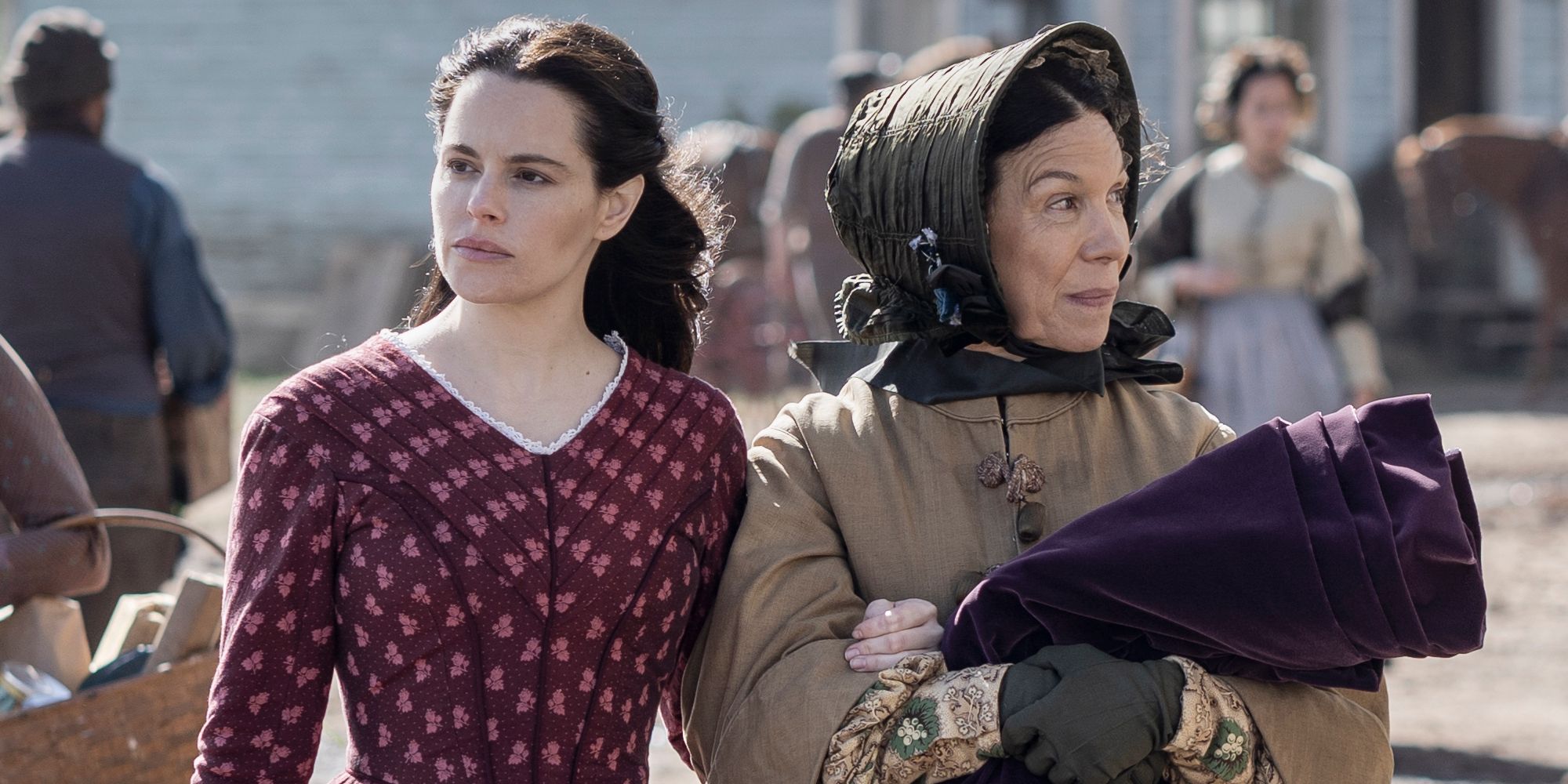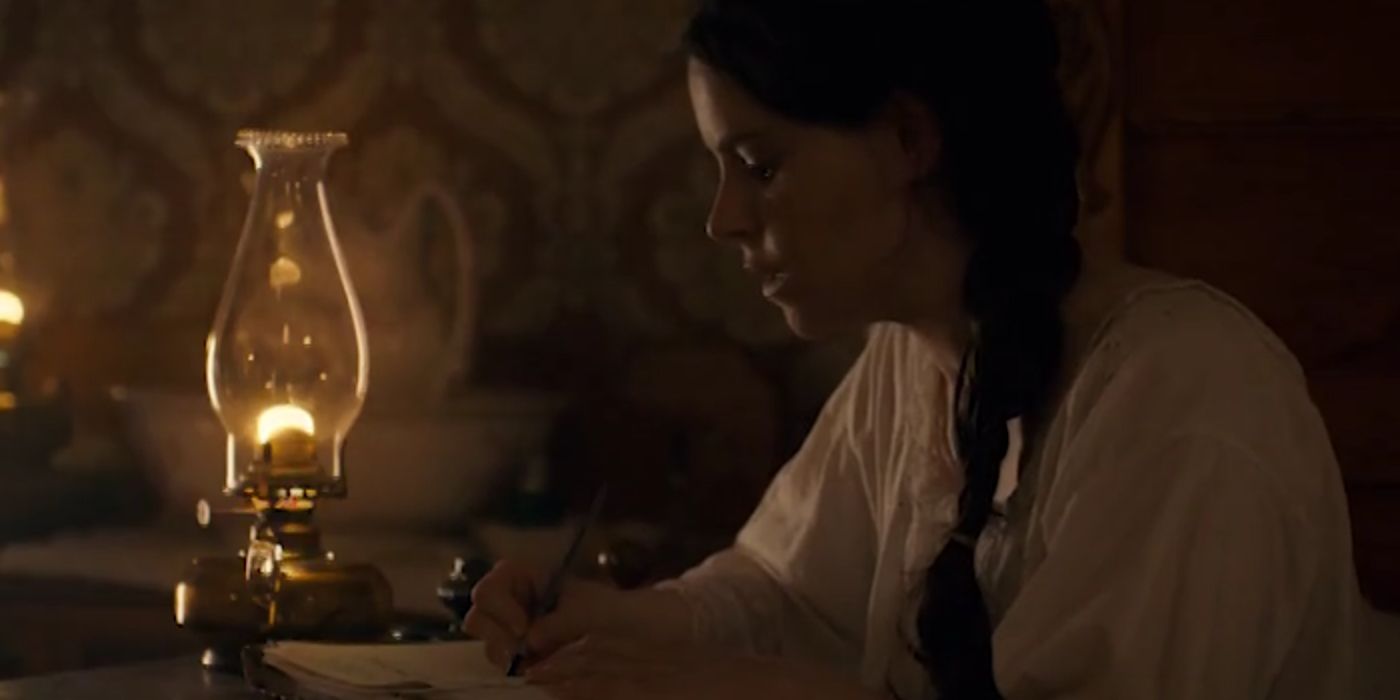WARNING: The following contains spoilers for Chapelwaite Season 1, Episode 1, "Blood Calls Blood," airing now on Epix.
While the creators of Chapelwaite made many changes to Stephen King's "Jerusalem's Lot" when adapting the short story to fit a ten-episode span, their addition of Rebecca Morgan incorporates America's literary history and gothic traditions. Due to the actions of Phillip and Stephen Boone, Charles Boone has a hard time finding a governess for his children: Honor, Loa and Tane. When Rebecca Morgan arrives seeking the position, she seems like a perfect fit. However, her desire to work with the Boones stems more from her authorial ambition than her growing care for the Boone family. Rebecca's education and literary ambition are a subversion of common tropes surrounding governesses in gothic fiction. The downsides to her ambition also make her a more complex character and give her room to grow as Chapelwaite unfolds.
While the show is clearly rooted in the gothic tradition, Rebecca’s ambition is strongly rooted in American literary history. Around 1850, many of America’s best sellers were written by women, including Susan Warner’s The Wide, Wide World, published in 1850, the year in which Chapelwaite takes place. Rebecca’s goal to write a story “based in truth” about the Boone family also reflects earlier “ripped from the headlines” American novels such as Hannah Webster Foster’s The Coquette or The History of Eliza Wharton and Charles Brockden Brown’s Wieland, published in 1798. These novels are written in epistolary format, and Stephen King mimicked the style of these and other early American novels in "Jerusalem's Lot." The short story is told through Charles Boone's letters to his friends and his companion Calvin McCann's journal entries and letters. While Chapelwaite is not an epistolary television series, the Filardi brothers use Rebecca's writings to pay homage to these roots.
Therefore, Rebecca's ambition and literary goals fit well within the time period. Still, the way she sets about reaching those goals is the problem. In "Jerusalem's Lot," Charles Boone was the aspiring author, though he admittedly only mentioned his aspirations once and did not seem to act on them. By transferring this ambition to a new character, Rebecca, Chapelwaite can connect the Boone family more to the nearby Preacher's Corners and allow Charles' story to focus more on his past and his relationship with his children.
From the moment that Rebecca lays eyes on the Boone family in town, she becomes convinced that they are the "only story" she can pursue for her Atlantic Monthly assignment, and she hides her father's work for the family to gain the position. Her whole purpose in working with the Boones is rooted in her desire to write her story, and she does not ask their permission before planning to use their family history and tragedies for her own creative and literary gain.
Rebecca's actions with the children and her advice to Charles also show her current self-centered lens. When she first introduces herself to Charles Boone, he asks about her experience, and she jokes that "she was one, once" before listing her actual credentials. Her focus on childcare through the lens of her experience shows that she has a hard time looking outside of herself when guiding the Boones.
The pendulum game serves as Rebecca's most self-centered moment with the children thus far. When attempting to bond with the Boones, Rebecca regales them with tales of the local celebrations for All Hallows Eve. She plays a pendulum game with them to summon spirits, ignoring that it may remind them of their dead mother. The game ultimately terrifies the children, and Rebecca admits that her game choice was not appropriate considering the children's ages and their loss.
Rebecca's later suggestion that the Boones attend mass to become ingratiated with the community lacks similar awareness. Rebecca states multiple times that she was excluded because she was "different," but she does not realize how her own experiences differ from the Boones'. She does not take into consideration the amount of animosity the town feels toward the Boone family. She also does not take into account that the townspeople's prejudice against the Boone children also is motivated by racism. While Charles does not blame Rebecca when the former Reverend Samuel Gallup kicks them out of the service, the incident still shows that she cannot rely solely on her own experience when guiding the Boone family.
While Rebecca eventually gives Charles good advice to help Loa, Rebecca currently cannot see past her own experiences and desires. To her credit, she seems willing so far to admit that she is wrong when it becomes obvious that she made a mistake, but she is currently unwilling to admit to herself that the way that she is approaching writing about the Boones could cause real damage. Rebecca ends the episode exploring the forbidden cellar and feverishly writing about what she has found so far. In her writing, she states, "for alone in the dark, me is who I answer to," but she fails to recognize that other people may be affected by her writing. With the coming horror, her secret serves as a bomb ready to go off within the Boone family, and her own curiosity and ambition may cause her to learn truths that she is not ready for as Chapelwaite continues.
To see how Rebecca grows in the face of the coming horror, watch new episodes of Chapelwaite Sundays at 10:00 p.m. ET/PT on Epix.



